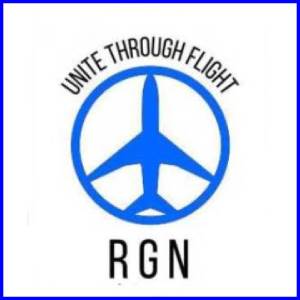 In the travel hospitality world, aviation and hotels have both been hard hit by COVID-19, and both sectors have had to respond swiftly to the pandemic. During two months on the road across two continents, it was thought-provoking to sit down and think about how hotels have changed their services, given their key context in the travel experience.
In the travel hospitality world, aviation and hotels have both been hard hit by COVID-19, and both sectors have had to respond swiftly to the pandemic. During two months on the road across two continents, it was thought-provoking to sit down and think about how hotels have changed their services, given their key context in the travel experience.
To start with, hotels have been resetting housekeeping expectations — a vital soft product part of the guest experience — but not changing their hard product to take the sting out of the lack of one of the great pleasures of staying in a hotel: having someone else make your bed, take out the trash, and tidy up.

Many hotels have cut back on daily housecleaning, and this change might prove to be permanent. Image: John Walton
At no hotel was a larger or additional waste bin provided. Hotel bins are generally tiny, and even without the additional waste generated by eating in rather than eating out, they fill up quickly with the usual detritus of travel. Nor, for that matter in COVID times, was there a separate bin or biohazard bag for masks, COVID tests and other potentially infectious material. By contrast, some airlines have made lavatory bins the designated disposal point for masks and other PPE.
Similarly, no hotels, even for a multiple-night stay, set out any extra towels, toiletries, coffee supplies, or other consumables. If reduced service is to continue, hotels really need to think about how to provide these — and to store and remove the used ones, to avoid piles of towels in the bathroom and dripping coffee pods by the machine — in a sustainable, elegant way. Perhaps some sort of trolley, placed just inside the door or in the corridor outside, stocked with the necessaries?

Not even for multi-night stays were additional coffee and other amenities provided. Image: John Walton
That said, some did provide additional, and welcome, touches: luxury hotel chain Sofitel has its own lightly-branded masks, which were positioned alongside the other amenities in the bathroom, as well as signature antimicrobial alcohol wipes that were lemongrass-scented, which ended up smelling rather like a posh gin and tonic. More airlines could certainly take a leaf out of this book.

Beyond toiletries lies the new luxury hotel guest amenity, a mask with travel pack. Image: John Walton
It was a surprise, though, not to see any additional cleaning supplies or wipe-down items, with the exception of one Pullman-branded business-focussed hotel, which offered a single disinfecting wipe: nice, but not sufficient for the entire room.
Even if COVID is not dominating our lives and health preoccupations in the way it did in 2020 and 2021, it would be nice to be able to sanitise high-touch areas without having to pack one’s own Clorox. Airlines are substantially better at this — though of course have much less space in need of sanitising, even in business class.
It was equally surprising to see room service having been abandoned in some cases. Is this decision driven by cost-cutting rather than epidemiology? While delivery services are of course an option, it seems like contactless room service should be a relatively low COVID risk.
On the backend, hotels have been able to leverage pre-pandemic digitalisation investment. Express checkout, for instance, obviously makes a lot of sense in the age of COVID, but several front desks seemed surprised when asked for a copy of the bill to review.
This is the kind of thing that could be sent automatically overnight — a sort of digital version of the old room bill under the door — together with helpful information (the airport shuttle starts at 5am and leaves every 20 minutes), prompts (do you need a taxi booked, or a wakeup call?) and even loyalty pitches (you earned X points/could have earned X points for this trip) or upsells (stop by the hotel coffee shop for a half-price coffee before 6am).
But there is still room for improvement here too: with the wider staffing crunch and Omicron wave-driven absence hitting hotels, guest service phone lines seemed very busy indeed. Options like chat services — using either the hotel’s own app or external services like SMS, WhatsApp, Messenger and so on — could well have helped here.
Overall, like airlines, hotels haven’t yet solved the puzzle of returning the pre-pandemic magic to their services. As the COVID situation in a growing number of countries begins to look hopeful, this is certainly an area where more focus is needed.

In some hotels, reduced indoor dining and closed bars gives an almost apocalyptic feel. Image: John Walton
Related Articles:
- What aviation can learn from cruise lines
- TWA Hotel brings charm, nostalgia and avgeek fun
- What’s your water buffalo? Learning from hotel innovations
Featured image credited to John Walton












